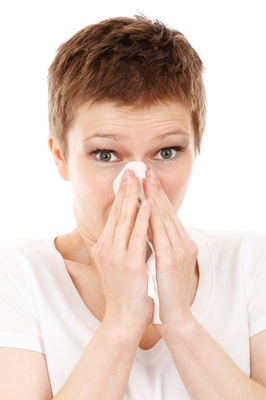Winter brings rainy days, chilly nights – and the dreaded flu.
The flu vaccine your best protection, especially since last year’s flu season was the worst since 2009, with almost 1100 deaths.
Hundreds of thousands of others also fell ill.
Babies, pregnant women and the elderly are more at risk, according to Victorian government website Better Health.
Young children account for nearly one-third of flu hospital admissions.
Last year, 12 per cent of flu hospital admissions were children aged less than 6 months and another 20 per cent were aged between six months and two years.
The flu can be debilitating, with symptoms hanging around for a week or more.
While some people only get mild symptoms such as a runny nose, headache, body aches and tiredness, the flu can be very severe and lead to pneumonia, inflammation of the brain or heart, organ damage and death.
FLU VACCINE YOUR BEST PROTECTION
Vaccination gives the best protection.
This year, free “enhanced” flu vaccines are available to people aged 65 and over.
Last year’s horror flu season prompted the Victorian government to offer free vaccinations for children under five years old.
Pregnant women, most indigenous people and those with chronic conditions are also eligible for free flu shots.
The vaccine can cause side effects, including tiredness, localised pain and low-grade temperature.
TIME YOUR VACCINATION
The flu season typically runs from June to September, peaking in August.
It’s crucial people don’t get vaccinated too early, according to Royal Australian College of General Practitioners president Dr Bastian Seidel.
“Recent evidence suggests that protection following flu vaccination may begin to wear off after three to four months. So timing of vaccination is critical,” he said.
Specialist GPs were best placed to advise patients about when to be vaccinated to ensure the best possible protection.
BE HYGIENIC
Someone infected with influenza spreads the virus when they cough or sneeze.
So cover your face when you cough or sneeze.
It’s also a good idea to disinfect surfaces, such as tables and bench tops, where these droplets can land, and avoid sharing cups and cutlery.
Now this should go without saying, but be sure to wash your hands regularly and thoroughly.
IT COULD BE THE FLU, WHAT DO I DO?
The flu is more than just a cold, with common symptoms such as a sudden high fever of 38C or more, a dry cough, body aches and extreme weakness and tiredness. Manage your symptoms, get plenty of rest and keep your fluids up.
You can’t take antibiotics as the flu is a viral infection, but decongestants and simple pain relievers can make you feel better while your immune system fights off the illness.
If you’re concerned about your symptoms see a doctor, but phone first so the clinic can take precautions to reduce the risk of infection to others.
Do your workmates a favour and call in sick if you do have the flu.
If your child is sick, keep them at home.








